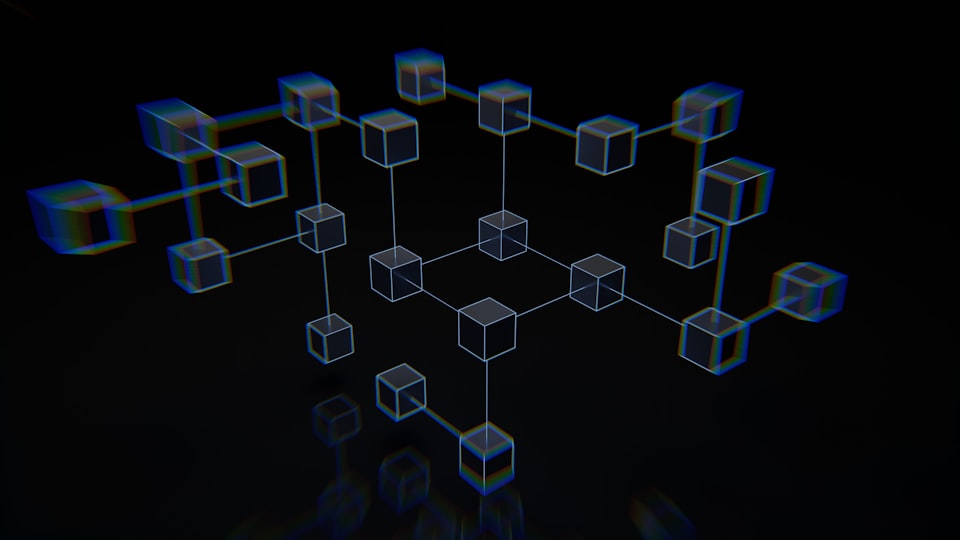Crypto Guide: What is a Blockchain?

Cryptocurrencies like Bitcoin operate using blockchain technology. A blockchain is a shared and immutable list of transactions that allows convenient recording and tracking. For example, the Bitcoin blockchain records all transactions involving this cryptocurrency. Blockchain technology and cryptocurrencies allow users to transfer value online without the help of third-party intermediaries like credit card companies or banks.
Blockchain is a crucial requirement for running and maintaining cryptocurrencies. It's a shared and immutable ledger used to record and track all transactions of an asset in a business network. An asset can be tangible (think of a car or land) or intangible (like intellectual property, branding, or copyrights). Virtually anything can be recorded and tracked online, including cryptocurrencies like Bitcoin, which redefine how we pay and invest.
Almost all cryptos, from Bitcoin and Ethereum to Solana, are secured using a blockchain network. Since it's transparent and accessible, participants can easily check and verify data using a lot of computing power. The blockchain's design also allows participants to conveniently send and receive secure payments without needing the help of a third-party verifier.
Finally, due to the cryptographic nature of the blockchain, payments are arguably more secure than standard bank transfers or credit or debit card payments. There's no need to share sensitive personal or banking information when making payments over the blockchain. There's no need to over-share information, and you reduce the risk of identity theft.
Here's how a blockchain works
Each completed transaction is recorded in a blockchain as a "block" of data. These transactions show the movement of the assets, including its description. For example, each block may show the transaction's time and amount. Since it's a blockchain, each block is connected to the ones before and after, creating a data chain. By simply looking at the data chain, a participant can see the nature of the asset movement and track how it changes hands.
Each block confirms the exact time and sequence of transactions, and blocks are securely linked together to prevent alteration and insertions between two existing blocks. All transactions are recorded, identified, and blocked together in an irreversible chain we call a blockchain.
Each additional block added to the chain strengthens the previous block and the whole blockchain. And since no one can tamper with each block, participants are building and maintaining a ledger of transactions that everyone can trust.
Adding and verifying a block in the Bitcoin blockchain
Each type of blockchain may require a specific set of steps or protocols to record, verify, and complete a block. For the Bitcoin blockchain, the process starts with a new transaction. This specific transaction is then transmitted to a network of peer-to-peer computers, which solve equations to confirm the transaction's validity. The entire network solves the "hash," a hexadecimal number simultaneously. Each computer generates a random hash, except for the "nonce," or the number used once.
Each miner starts with a nonce of zero, which is added to the randomly generated hash. If this number isn't less or equal to the target hash, a value of one is added to the nonce, and another block hash is generated. The process continues until a miner generates the correct hash, wins the race, and is rewarded.
What are the benefits of blockchains?
![What is Blockchain Technology? How Does Blockchain Work? [Updated]](https://www.simplilearn.com/ice9/free_resources_article_thumb/how_blockchain_works.jpg)
Using the blockchain for internet projects, including cryptocurrencies, brings many benefits.
- Promotes transparency and trust: Since the blockchain is a members-only network, you can always count on timely and accurate data. Also, you gain confidence knowing that the blockchain record is shared only with network members to whom you share access. Participants get unfettered access to the records, promoting record tracking and keeping efficiency. Also, the blockchain removes the need for an intermediary to complete transactions, making it a true peer-to-peer system.
- Increased privacy: Participants can enjoy privacy and anonymity when using blockchains. Cryptocurrency transactions don't require sharing your banking or personal information, thus protecting you from hacking or identity theft.
- More efficient: Since it's an open and distributed ledger shared among participants, lengthy and confusing record reconciliations are eliminated. Since all transactions are published publicly, anyone can check and verify their authenticity. This feature protects data and information from manipulation. And when it comes to transaction times, participants can enjoy quick and cheap payments every time.
Challenges in the adoption of blockchains
The blockchains serve as the backbone of most crypto and other related projects. It's now the underlying technology for many helpful and innovative projects in the realm of finance, healthcare, property records, and even smart contracts. While the benefits of blockchain are clear, developers and participants must face a few more hurdles and issues. Two of the most important concerns are the "relative newness" of the technology and the shortage of skills required to use and develop it.
Blockchains are not yet widely adopted in the business community, and there is also a lot of apprehension about the technology. Also, blockchains become more effective if there's a broad adoption. If trust, skills, and knowledge are missing in the conversations, it's difficult for the general business community to use them fully. Trust is also important in realizing a full or at least wider adoption of blockchain technology. Even if we assume that business owners and developers start trusting the technology, there's a chance that blockchain participants may not fully trust the other parties involved.
Then, there's the safety and security of the blockchain. While there has been no recorded hack or breach involving the Bitcoin blockchain, a few reported breaches exist on some popular blockchains, including Solana. Again, this goes back to the crucial element of trust in people who run and manage the software. If there are some trust issues with the blockchain, then business owners and developers may need to go back to the different types of blockchains, like private and public blockchains.
The future of blockchains
Blockchains are here to stay, and they're rapidly changing the way we work. It's a new technology, and, understandably, many are still unaware of its features and capabilities, and some businesses and organizations are still apprehensive about its potential. However, experts are saying that blockchains have the potential to reshape the way we work and live as HTML did during the early days of the internet.
For most, the blockchains are synonymous with Bitcoin and cryptocurrencies, but the latest developments suggest that there's more to expect from this technology. We can expect an expansion in blockchain applications for public and private domains due to complementary improvements in other technologies such as machine learning, artificial intelligence, and smart contracts. So, reading potential blockchain applications in various areas like farming, manufacturing, and design in the next few months or years won't be surprising.



